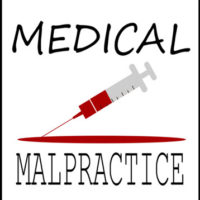4 Essential Elements of Medical Malpractice Claims in Maryland

Medical malpractice is a term that gets a lot of press these days. It seems like doctors across Maryland are constantly on trial, defending against claims of improper treatment and other failures. Media coverage thrusts the most egregious examples of medical malpractice into the spotlight, providing salacious details about grizzly medical mistakes. But the legal process involved rarely gets the same amount of attention.
From a legal standpoint, medical malpractice is a type of personal injury claim. In order to receive any compensation from a medical malpractice claim, the patient-victim must prove negligence. As with other legal claims based on negligence, there are four essential elements to medical malpractice claims in Maryland: (1) Duty, (2) Breach, (3) Causation and (4) Harm.
- Duty
The first element of a negligence claim involves a duty of care. In the medical context, doctors owe their patients a duty of care. Stated otherwise, doctors must adhere to established standards when providing treatment to patients. If the doctor does not act reasonably or professionally, they may breach their duty of care to the patient.
- Breach
The second element of a negligence claim involves a breach of the duty of care. In the medical context, this means that the doctor deviates from established standards of treatment. In this context, simples mistakes or human error do not always qualify as a breach. The doctor must make a serious and unjustifiable error. If a doctor does breach their duty of care, they may be liable for any harm or injury to the patient.
- Causation
The third element of a negligence claim involves causation. In other words, the patient must prove that the doctor’s actions were the direct cause of harm or injury. If the patient’s injuries are not a direct result of the doctor’s breach, then it does not qualify as medical malpractice in Maryland.
- Harm
The fourth element of a negligence claim involves harm. The patient must demonstrate that the doctor’s actions caused actual harm or injury. If the doctor’s breach did not cause any harm or injury to the patient, then it does not qualify as medical malpractice in Maryland. Patients can request two types of damages for harm connected to medical malpractice:
- Economic Damages — These are measurable damages that the patient can reasonably add up, such as medical expenses, legal fees, funeral costs and other related expenses; and
- Non-Economic Damages — These are more abstract damages that are difficult to quantify, such as pain and suffering, emotional trauma and loss of support.
Contact Us Today for Help
If you need to file a medical malpractice lawsuit in Maryland, it can be decidedly advantageous to reach out to a seasoned personal injury attorney. The attorneys at Iamele & Iamele, LLP in Baltimore, Maryland, have experience representing clients in a variety of personal injury settings, including medical malpractice cases. If you need legal help, contact us today for a free initial consultation.

